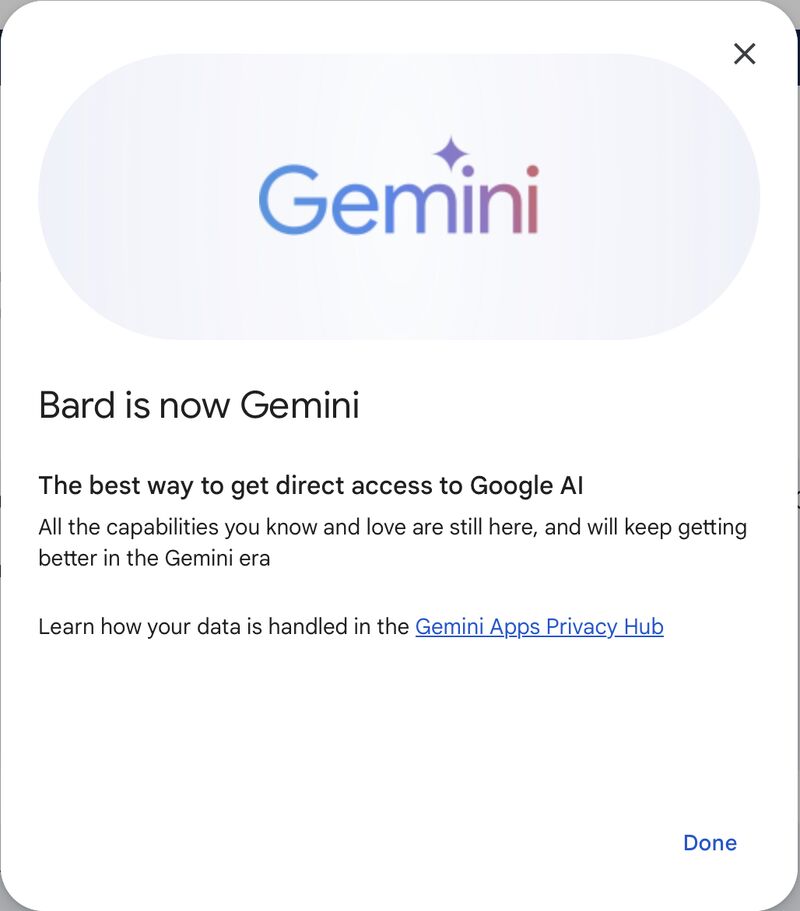Google Bard is now Gemini.
We are now officially in Google‘s “Gemini Era” where the strategy is for AI to not just be an auxiliary tool but a central pillar of Google’s digital experience.
Google’s conversational AI tool, previously known as Bard, has been rebranded to Gemini across Google’s suite of products and services, aiming to streamline user interaction with AI across its ecosystem.
Key Highlights:
1. Gemini and Gemini Advanced:
Alongside Gemini, Google introduces Gemini Advanced, a premium version of the tool, enhancing the AI interaction experience for users.
2. Integration Across Google Products:
Gemini is set to become a new opt-in default assistant on Android and has been added to the iOS Google App. It will replace Duet AI, bringing advanced AI capabilities to Gmail, Docs, Sheets, Slides, Meet, and other Google products, promising a seamless and more intuitive user experience.
3. Pricing and Availability:
Gemini Advanced will be bundled as part of an AI Premium plan within the Google One subscription service, priced at $19.99 a month. This plan not only offers advanced AI capabilities but also includes extra storage among other features, with a free two-month trial for new subscribers.
4. Enhanced Productivity:
With Gemini’s integration into Google’s suite of productivity tools, users can expect a more streamlined workflow, capable of understanding complex instructions and providing contextually relevant assistance.
5. Content Creation:
Gemini Advanced, powered by the Gemini Ultra 1.0 model, positions itself as an end-to-end content creation tool. From generating ideas to producing content, it promises to significantly reduce the time and effort involved in content-related tasks.
6. Multimodal Capabilities:
The announcement hints at upcoming exclusive features, including multimodal, coding, and data analysis capabilities. This expansion will likely open new avenues for creative and technical work, further blurring the lines between human and machine collaboration.
For professionals and businesses, adapting to this change means embracing AI to enhance operational efficiency, foster innovation, and stay competitive in the rapidly evolving digital economy.
What are your thoughts on Google’s Gemini strategy and rebranding?

